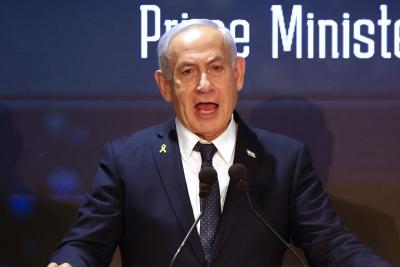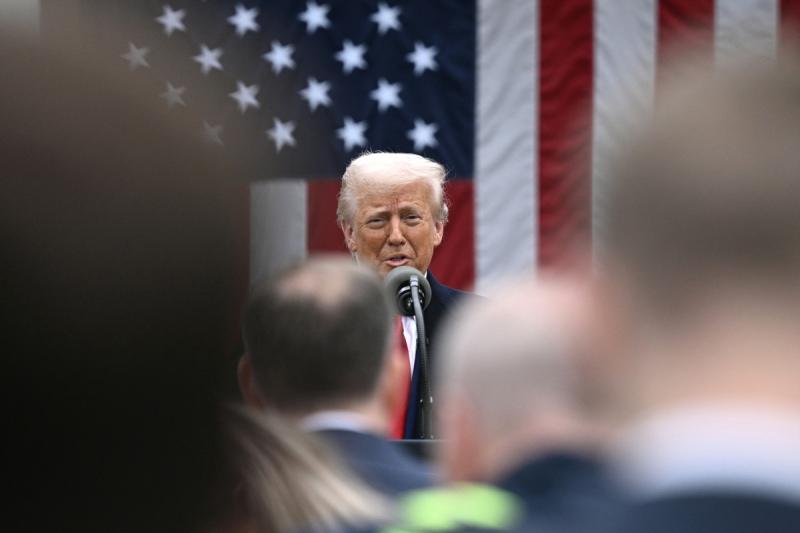The American elections will take place on November 5th. Polls are extremely close between Kamala Harris and Donald Trump, with the former president gaining some ground. Do you think the momentum is currently in Trump’s favor at this stage of the campaign?
Kamala Harris has indeed lost points in the polls since her nomination in September. Against Trump’s relentless media machine, with his daily controversial statements dominating the news, the Democratic candidate struggles to push her own agenda. In my view, Biden's economic record is excellent, but Americans do not perceive it that way – a common phenomenon. In France, for example, two million jobs have been created in recent years, yet few credit anyone for improvements in the labor market. On immigration and public safety, Harris does not have a positive track record to promote, as the situation in the U.S. on these matters is objectively bad. This leaves her mainly with abortion rights as a campaign focus, which is undoubtedly crucial but insufficient to secure victory. Highlighting the institutional disorder that Trump’s election could cause also seems unconvincing to Republican voters.
That said, this American election will be decided in swing states like Michigan, Nevada, and Arizona, where just a few thousand votes could make the difference. Any prediction is therefore a futile exercise. I get frustrated when I hear European leaders express fear over the possible election of Trump. Regardless of who wins, the U.S. will continue to distance itself from Europe. We need to mature and become strong in our own right.
Two Key Issues: Purchasing Power and Immigration
Does Biden's record on these two issues support Kamala Harris's campaign?
On immigration, clearly not, but Harris’s weakness lies in a broader issue: the perception that Democrats are unable to maintain order. Take Democratic strongholds like San Francisco or Los Angeles – homelessness has reached absurd levels, housing is unaffordable, and drugs circulate freely. Harris is a reasonable figure, but a significant part of the Democratic Party is as lax as the most radical environmentalists in Europe. Americans reject this. However, on the economy, Biden's record is outstanding. The Inflation Reduction Act (IRA), a major tax credit system for businesses, is driving green reindustrialization, proving that economic strength and environmental goals can align. This policy helps the U.S. regain its industrial status while fostering innovations that will contribute to global decarbonization, making it harder for China to catch up economically. It’s a well-designed policy, executed by an excellent administration.
The Debate over Healthcare
The two candidates have opposing views on healthcare: the Democratic candidate aims to expand Obamacare, while the Republican candidate dismisses the reform as "terrible." Can the U.S., burdened with debt, afford to fund this expanded social coverage?
There is undeniably an issue with healthcare access in the U.S. Despite being one of the world’s highest spenders on healthcare, the outcomes are mediocre. It is a highly unequal system, with world-class hospitals but enormous insurance costs for families. Lifestyle factors also drive chronic diseases and healthcare costs. JD Vance, Trump’s running mate, mentions in his autobiography that as a child, he ate breakfast at fast food chains every day. While it is true that the U.S. has substantial debt, it is not significantly higher, proportionally, than France’s. Moreover, the U.S.'s economic dynamism and the dollar's role help sustain this debt.
Can Mental Health Attacks Influence the Election?
Kamala Harris recently criticized Trump’s behavior as "increasingly unstable and deranged." Trump has also mocked Biden’s mental fitness. Can these arguments sway voters?
No. The U.S. is deeply divided, and almost everyone knows who they will vote for. Trump’s supporters view him as a hero and cheer his provocations against Harris, the media, and the judiciary. Harris’s supporters believe that electing Trump, now more extreme and prepared than eight years ago, would endanger the rule of law. I agree with that view. However, these arguments are not new and have little impact on the current campaign.
A Showbiz vs. Business Electorate?
The Democrats are rallying Hollywood, while Trump enjoys unwavering support from Elon Musk. Is this a battle between mobilizing young voters and appealing to older ones?
Trump embodies the business world, which is highly regarded in the U.S. This is a significant cultural difference from France. As Pascal Bruckner often says, the difference between our two countries is that the French are uncomfortable talking about money, while Americans are uncomfortable talking about sex. I am not a fan of Musk's personality, and I dislike social media, especially Twitter, but Musk is undeniably a genius. Tesla, SpaceX, and Neuralink are transforming transportation, space exploration, and neurotechnology. Europe needs to think deeply about this. Take artificial intelligence, for example – all the key companies are American, and none are European. Although the new European Commission seems to be addressing this issue, Europe has fallen far behind the U.S. in innovation, posing an almost existential risk. The recent Draghi report highlights this, but most politicians in France and Germany remain disengaged, which is a serious mistake.
The Role of Economic Sovereignty in France’s Future
The 7th Rencontres de l’Avenir, which you chair, will be held in Saint-Raphaël from November 8-10. Nicolas Sarkozy will speak about the future of France. Does this future depend on greater economic sovereignty?
Neither France nor Europe has made a clear choice on this matter. Both Kamala Harris and Donald Trump share at least one goal: they want a powerful, innovative America at the forefront of technology and economics, knowing that scientific and economic strength translates into geopolitical power. In France, however, we overtax businesses and sacrifice investments in the future to preserve our welfare state. This will be one of the topics discussed at Rencontres de l’Avenirwith President Sarkozy and 50 other intellectuals, business leaders, and public figures. This event, which attracts over 10,000 participants, promotes science, innovation, progress, and freedom – Enlightenment values that are increasingly under threat within Western societies.
(***) Nicolas Bouzou is a French economist and essayist, director of the consulting firm Asterès, and president of the Rencontres de l’Avenir in Saint-Raphaël. He also teaches at the MBA Law & Management program at the University of Paris II Assas.
 French
French














